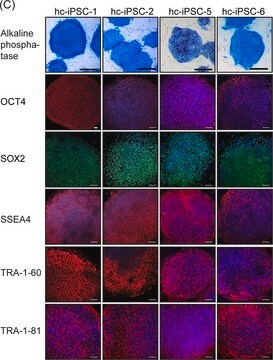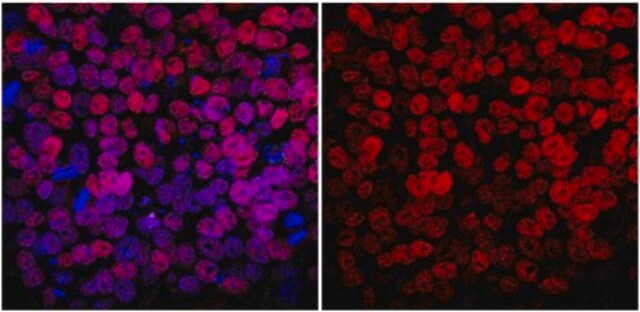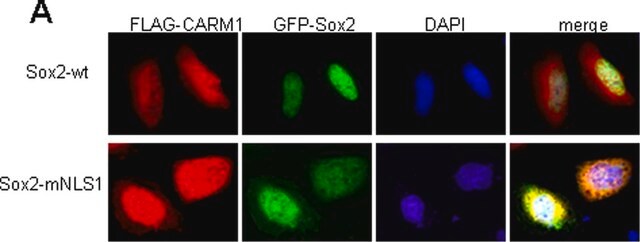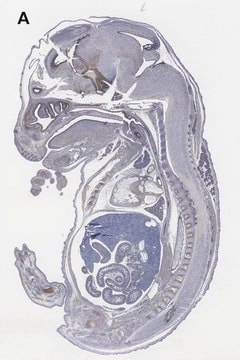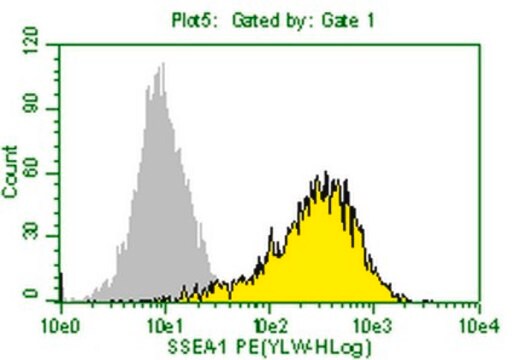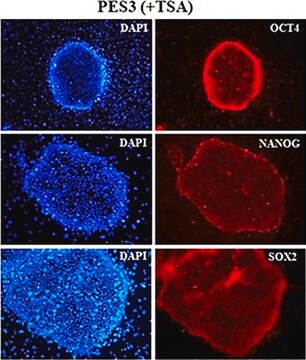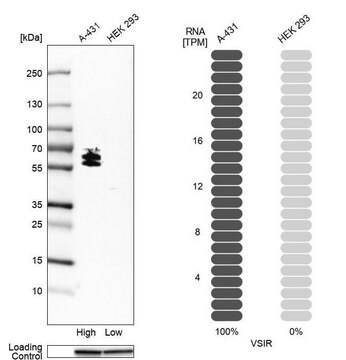FCMAB116P
Milli-Mark Anti-SSEA-4-PE Antibody, clone MC-813-70
clone MC-813-70, Milli-Mark®, from mouse
About This Item
Prodotti consigliati
Origine biologica
mouse
Livello qualitativo
Coniugato
PE
Forma dell’anticorpo
purified antibody
Tipo di anticorpo
primary antibodies
Clone
MC-813-70, monoclonal
Reattività contro le specie
human
Produttore/marchio commerciale
Milli-Mark®
tecniche
flow cytometry: suitable
immunocytochemistry: suitable
Isotipo
IgG3κ
Condizioni di spedizione
wet ice
modifica post-traduzionali bersaglio
unmodified
Informazioni sul gene
human ... FUT4(2526)
Descrizione generale
Specificità
No immunoreactivity is evident with undifferentiated murine EC, ES and EG cells. Expression of SSEA-4 is down regulated following differentiation of human EC cells. In ctontrast, the differentiation of murine EC and ES cells may be accompanied by an increase in SSEA-4 expression.
Immunogeno
Applicazioni
Pluripotent human ES cells exhibit strong immunoreactivity to this antibody.
Immunocytochemical staining of fixed H9 human ES cells incubated for 2 hours at 2-8oC with 1:50 dilution of anti-SSEA-4, clone MC-813-70, PE conjugated (Cat. No. FCMAB116P) monoclonal antibody.
Pluripotent human ES cells exhibit strong immunoreactivity to this antibody.
Stem Cell Research
Pluripotent & Early Differentiation
Stato fisico
Stoccaggio e stabilità
Risultati analitici
Pluripotent human embryonic stem (ES) cells
Note legali
Esclusione di responsabilità
Non trovi il prodotto giusto?
Prova il nostro Motore di ricerca dei prodotti.
Codice della classe di stoccaggio
10 - Combustible liquids
Classe di pericolosità dell'acqua (WGK)
WGK 2
Punto d’infiammabilità (°F)
Not applicable
Punto d’infiammabilità (°C)
Not applicable
Certificati d'analisi (COA)
Cerca il Certificati d'analisi (COA) digitando il numero di lotto/batch corrispondente. I numeri di lotto o di batch sono stampati sull'etichetta dei prodotti dopo la parola ‘Lotto’ o ‘Batch’.
Possiedi già questo prodotto?
I documenti relativi ai prodotti acquistati recentemente sono disponibili nell’Archivio dei documenti.
Il team dei nostri ricercatori vanta grande esperienza in tutte le aree della ricerca quali Life Science, scienza dei materiali, sintesi chimica, cromatografia, discipline analitiche, ecc..
Contatta l'Assistenza Tecnica.